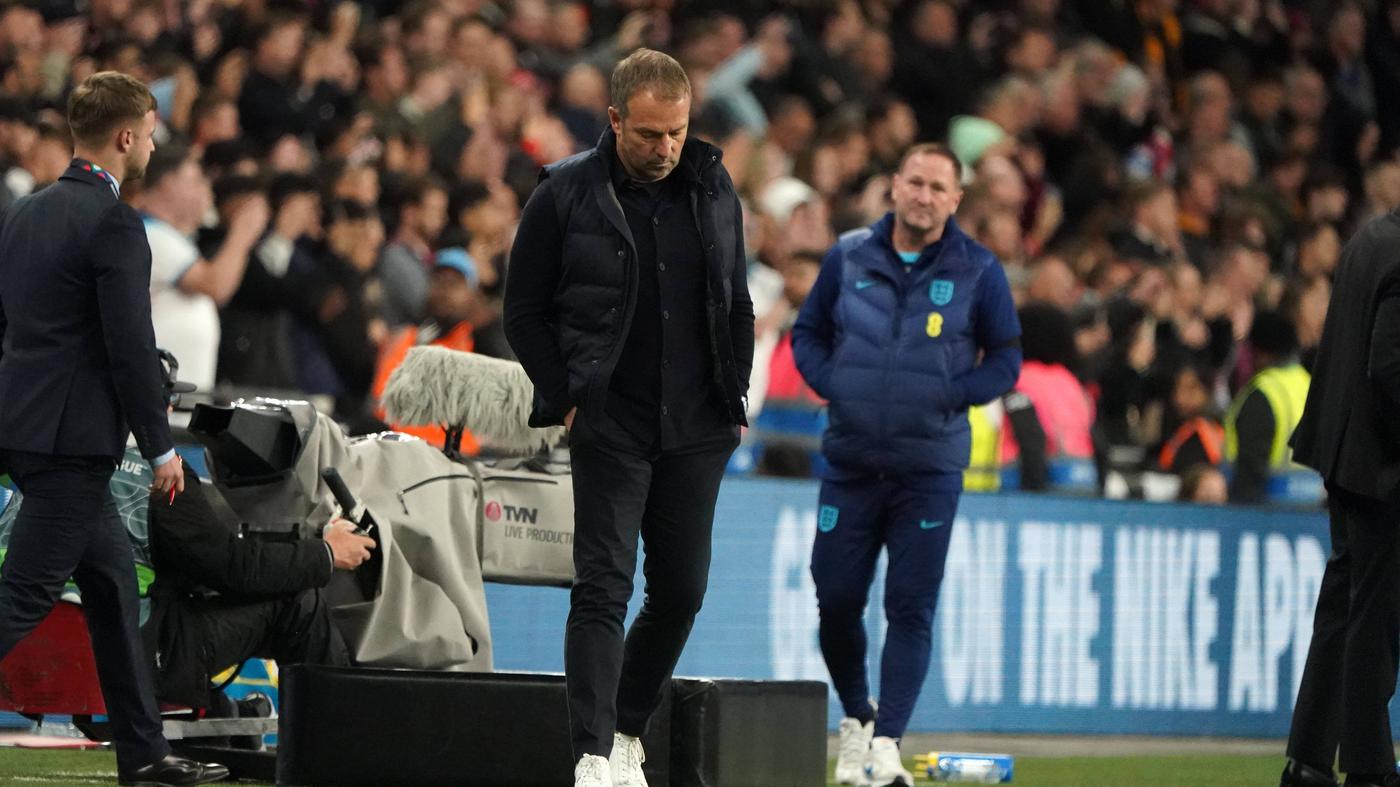Almost a year and a half before their fourth and last World Cup title to date, the national team played a game that is undoubtedly one of the most exciting and craziest in the history of German football. In the World Cup qualifier against Sweden, the Germans led 3-0 at half-time, and immediately after the break they increased to 4-0 – but in the end, after a total loss of control, they had to settle for a 4-4 lead.
This game in Berlin’s Olympic Stadium once again reinforced the general reservations about the German national team and especially about their coach at the time, Joachim Löw, who many had always considered not competitive enough.
20 months later Löw returned to Berlin as a triumphant from Rio.
“This experience helped us,” wrote Hansi Flick, Löw’s assistant at the time and today’s successor as national coach, about the 4-4 win against Sweden in his book that has just been published. So everything could be fine at the moment.
Because Flick and his team experienced their own Sweden on Monday evening in Wembley. Midway through the second half they led 2-0 against a pitifully harmless English team. Victory and with it rehabilitation for the defeat three days earlier against Hungary seemed certain to them.
But then the hosts turned the game around in no time, equalized with two goals within three minutes to make it 2-2 and even took the lead a few minutes before the end with a penalty kick.
There is no automatic title
And even if Kai Havertz managed to make it 3:3 for the Germans shortly before the end: This game, the last before the immediate preparation for the World Cup in Qatar, felt like a disappointment. However, it can only superficially be compared with “Sweden 2012”. Therefore, it would be very easy and too naive to see the German national team on the best way to the World Cup title.
On the one hand, there is of course no automatism that was set in motion on Monday. And on the other hand, the conditions are completely different than ten years ago.
The team from back then not only had enough time to get in shape for the World Cup; it had also grown over the years and gathered a lot of seasoned footballers in its ranks in the prime of their creative power.
The same cannot be said about the current team. There is no doubt that talent is there, as well as a certain amount of experience, but the structural weaknesses, for example in attack or in the defensive wing positions, will hardly be able to be remedied in the almost eight weeks until the World Cup finals in Qatar.
“Maybe it was a good game to learn from,” said Kai Havertz, Wembley’s double goalscorer, after the 3-3 win over England. Maybe. But the Germans had already summoned up the possible learning effect after the 0-1 draw against Hungary three days earlier.
